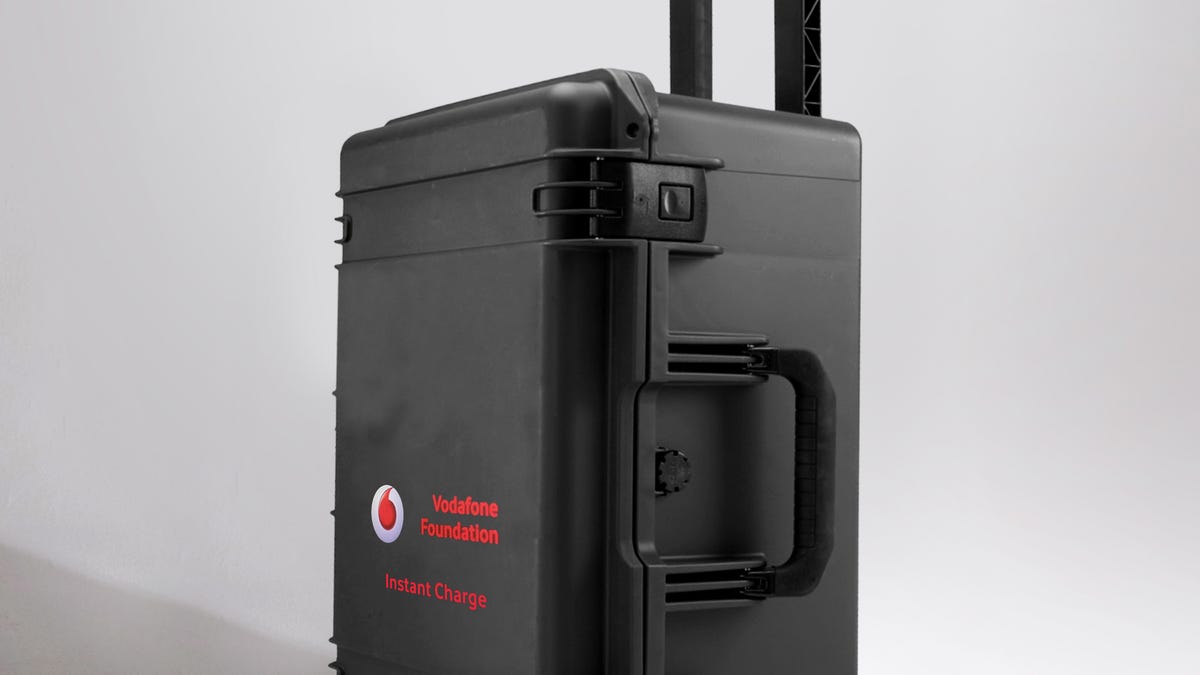Vodafone brings refugees 66-phone mega-charger, Wi-Fi
The Vodafone Foundation is working with the UN to help refugees get online with portable equipment.
Most of the devices shown off this week at Mobile World Congress are expensive, shiny and designed for the hyper-connected world. But not all.
The Vodafone Foundation unveiled two new products at the show in Barcelona on Monday designed to bring the benefits of the Internet to thousands of Syrian and Kenyan refugees. The foundation, which is the mobile network's philanthropic arm, runs several disaster relief projects in the countries where it operates. These are often focused on meeting the connection needs of the United Nations' refugee agency, the UNHCR.
The challenges facing refugees and displaced people differ depending on their region and where they are in their journeys. For people on the move, Internet connectivity allows them to plot their next steps and to check in with friends and family who may be worried about them. For others who are semi-permanently living in refugee camps, the Internet means access to services and education that otherwise wouldn't be available.
Syrian refugees who are making their way to Europe by way of Greece tend to have devices and Internet access but another stumbling block still prevents them from getting online: the ability to charge their phones.
"Unlike refugees in many other parts of the world, many of the refugee families arriving in Europe have smartphones, rather than feature phones, and there is an increasing need for access to power," Oisin Walton, the Vodafone Foundation Instant Network program manager, said in a statement.
The foundation is attempting to solve this problem by creating a durable and portable outdoor mobile charger that can charge up to 66 smartphones at a time. The Instant Charge can be transported from place to place in a box weighing 23 kilograms, or about 50 pounds. It can be set up in 10 minutes flat and is split into four modules to avoid overcrowding.
The mega-charger has been designed specifically to support the work the UNHCR is doing on the Greek islands of Lesbos and Samos, which have seen a large influx of refugees over the last year. The foundation also envisions that it could be used alongside its Instant Network Mini, a Wi-Fi network in a rucksack that has been used in crisis situations from Kenya to the Philippines.
The second initiative introduced in Barcelona on Monday is an update to a project shown last year at MWC. The Instant Classroom project, a box containing 25 tablets, has already been used over the past year as part of the Instant Network Schools program, which has provided access to education to 60,000 young refugees living in the Dadaab region of Kenya.
The next-generation Instant Classroom Lite is designed for big class sizes in refugee camps and weighs in at less than half of the original. It contains a projector and audio system, 3G and 4G connectivity and a laptop server preloaded with educational content. It can be powered using a solar panel, a mains socket or a 12V car socket and stays juiced up for four hours at a time. Just like the Instant Charge, it can be set up in 10 minutes.


